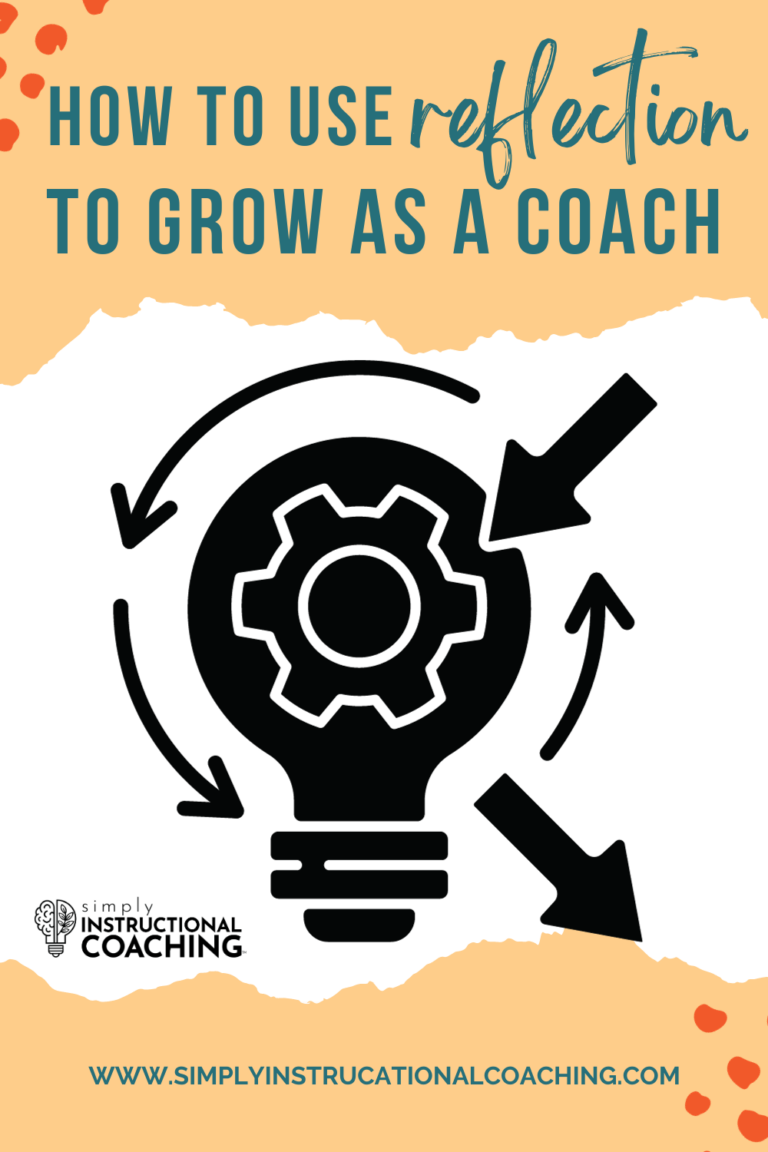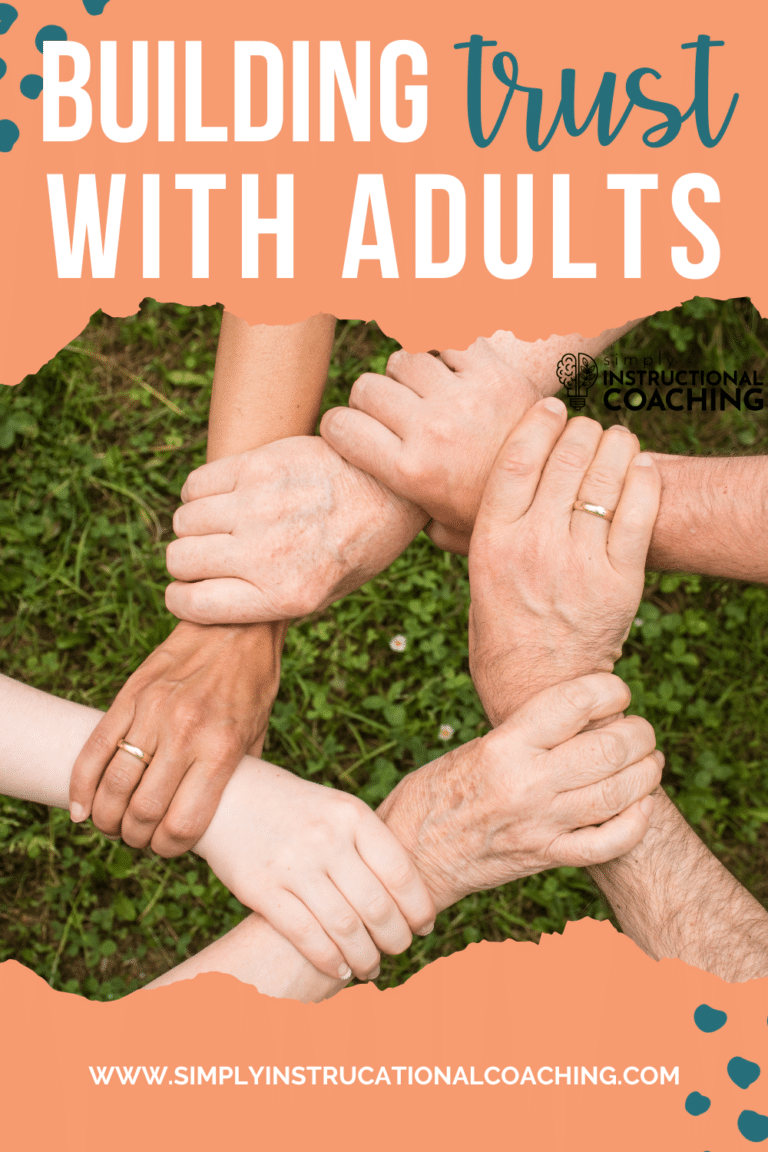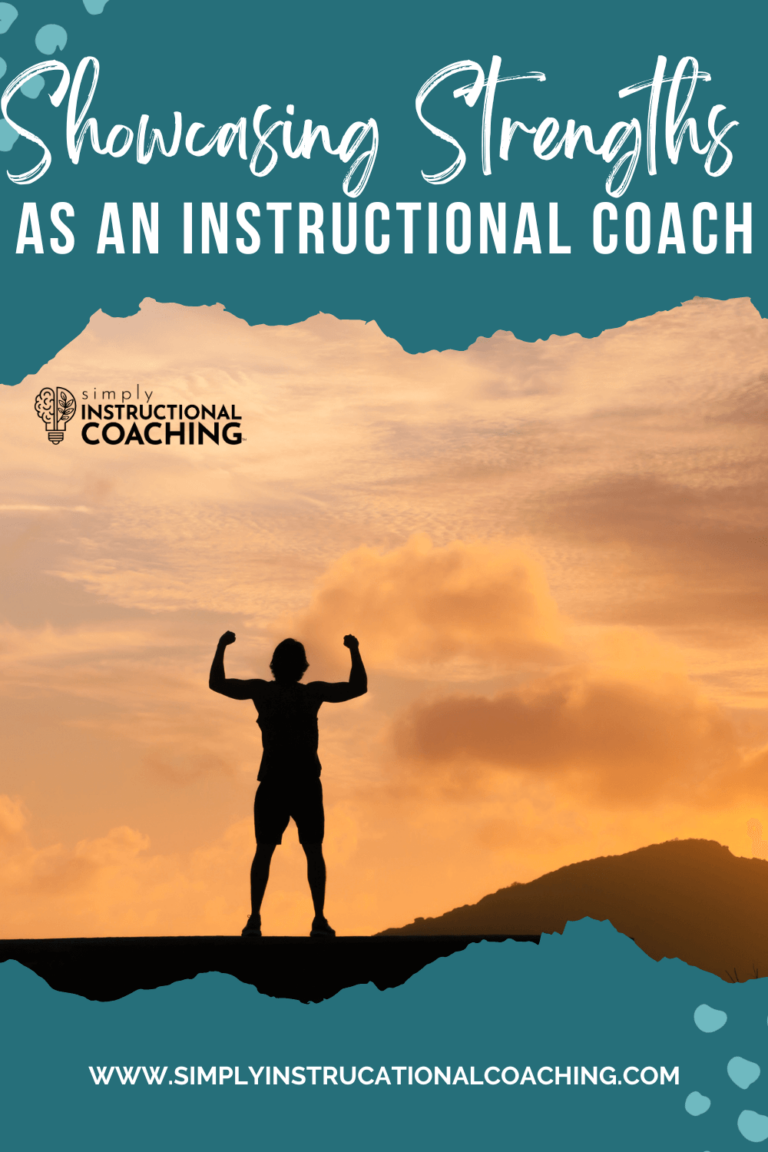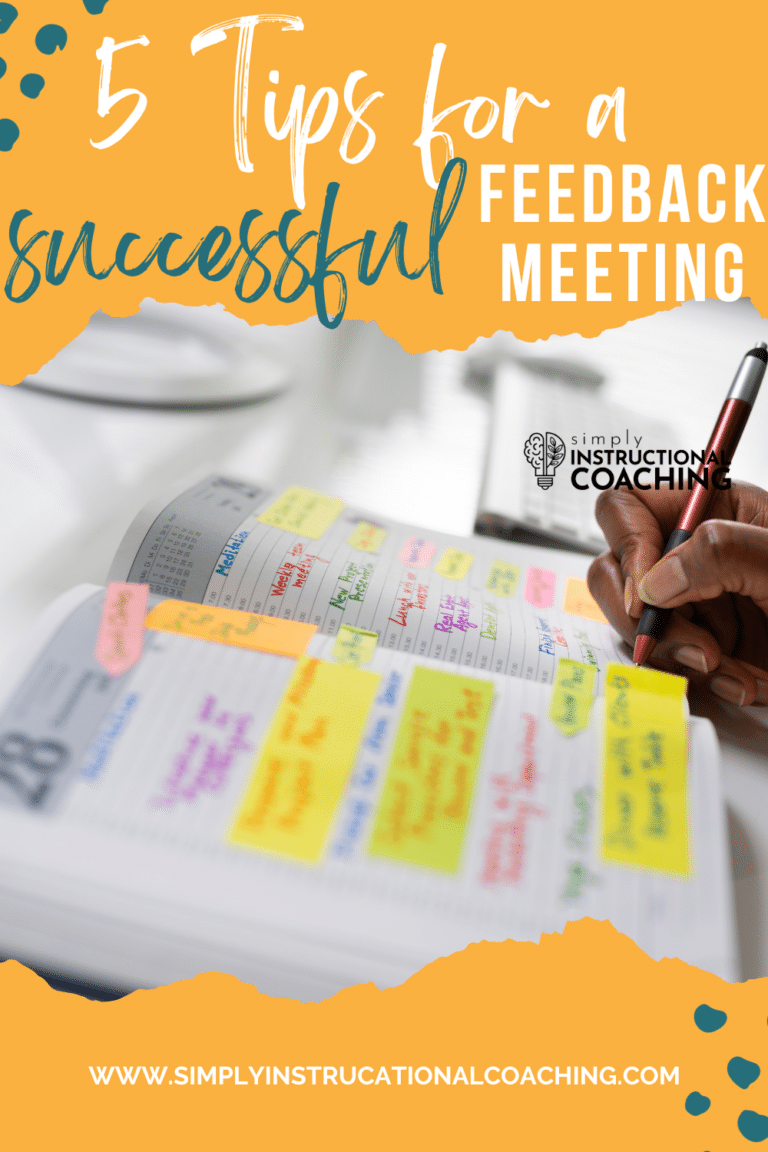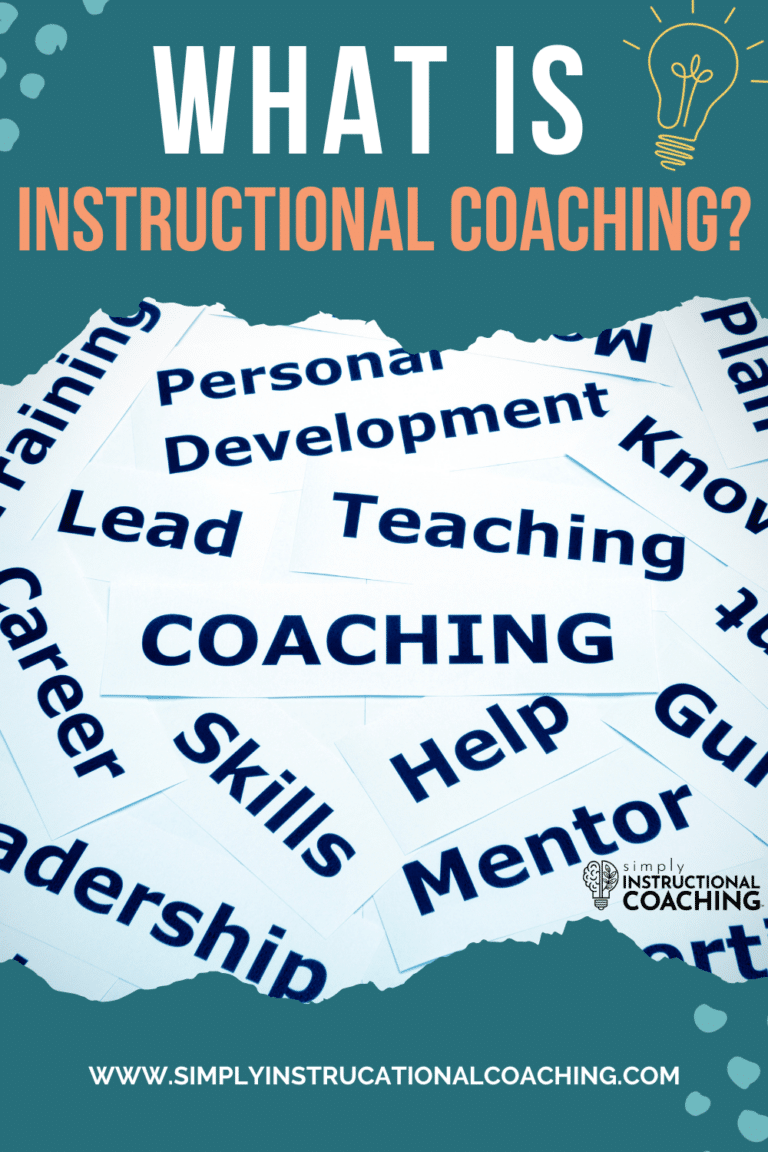
With summer quickly approaching, we are all hustling and bustling to get everything wrapped up before the end of the year. Before you hit that “end” button, make sure you take time to do one of the most important jobs in education: reflect.

As an instructional coach, it is important to make sure you are maximizing the effect you can have in a classroom. The teachers you coach depend on you to help create data-driven changes in the classroom so you want to make sure you are doing everything you can in that venture. One of the best ways to reflect back on your year is to get feedback from the people you work with the most, teachers. A great way to get feedback is through a survey. I know, I know…it’s not always fun anxiously waiting to see what someone is going to say about you but as an instructional coach, it’s important to ensure you are helping each teacher.
The reason surveys are so helpful is simple:

When you send out a request for feedback, you want to make sure you are being as respectful of your teachers’ time and anonymity. As we all know, education is a whirlwind field with “to do” lists that can stretch for miles. Invite teachers to do your survey; don’t make it a requirement! Most people will have no problem completing the survey for you. When you invite the teachers to take your survey, make sure you give them a purpose such as:
“In order to ensure we are maximizing our effectiveness as a team, I would like to you take this quick survey. It’s important to me to know what I can do to better serve you and your students as well as what I am doing well. I value your feedback and look forward to seeing your suggestions!”
Make sure you set a reasonable deadline. You don’t want to give people too much time but you also don’t want to rush them. About a week is a good amount of time to complete a survey while ensuring it doesn’t get buried in an email somewhere. While time is important so is anonymity. If at all possible, allow your teachers to give you anonymous feedback; this helps ensure the feedback you get is meaningful. Survey Monkey and Google Forms are free tools you can use.
When you create your survey, make sure you have open-ended questions. You don’t want just a “yes” or “no” option because that doesn’t do much to help you. Try to phrase questions so teachers can rate your performance on a scale of 1 to 5 with one being strongly disagreed and five being strongly agreed. After each question, create a space for comments so your teachers can explain their rating.

You can ask any range of questions that would help you grow as an instructional coach. When I create surveys, I tend to ask myself, “What is my goal as an instructional coach?” Naturally, I want to help my teachers reach their professional goals by providing them with resources and conducting valuable observations. I also know that in order to be effective, I need to have a good relationship with my teachers. Here are some questions you could ask using the 1 to 5 scale.
My instructional coach communicates regularly with me.
My instructional coach gives me the opportunity to provide input into activities and programs led by my instructional coach.
My instructional coach helps me overcome barriers to teaching and learning.
My instructional coach leads me in evaluating my instruction and curricular programs.
My instructional coach uses information about student performance to help me improve my instruction.
My instructional coach helps me to identify and solve problems.
My instructional coach introduces me to new ways to do things better.
My instructional coach contributes positively to the improvement of my instruction.
My instructional coach believes in celebrating instructional and academic improvement.
My instructional coach maintains confidentiality between us.
My instructional coach communicates information clearly and concisely.
My instructional coach maintains open, two-way communication with me.
My instructional coach assists in developing appropriate student assessments.
My instructional coach communicates the importance of focusing on the needs of students.
My instructional coach conducts planning, modeling, and feedback sessions with me.
My instructional coach helps to create a school environment conducive to increasing achievement.
My instructional coach works with me to ensure that program standards, instruction, and measures of learning are aligned.
My instructional coach assists me in instructional planning.
My instructional coach models research-based instructional procedures and helps me to implement these procedures.
My coach has helped me perform better.
My coach has helped me reach my professional goals.
My observations and feedback have helped me grow as a teacher.
I have gained helpful resources from my coach.
I trust my coach.
I feel I can ask my coach for resources.
By asking a combination of questions, you are hitting all realms of your duties as an instructional coach. Teachers will appreciate you taking the time to get their thoughts and opinions and will be glad to take time out of their busy day to help you grow in your profession.
In addition to the survey, create some questions that you yourself need to answer.
Here are a few that I use at the end of each year:
- Specifically, identify what went well this year. i.e. Coaching Cycles, PD Delivery, Team Building, Relationship Building
- What changes do I need to make next school year? i.e. Coaching Cycles, PD Delivery, Team Building, Relationship Building
- How will I better connect with my teachers?
- Identify teachers whom you felt you should work on your partnership.
- What area do I want to grow in… Professionally? Personally?
- How do I want next year to be different? What do I intentionally need to do to make that happen? (Create a Checklist/Implementation Plan)
Combining your survey results and your personal reflection questions answers, you will be able to create a data-driven plan of action to #BEMORETHANEFFECTIVE as an instructional coach next school year!
So, before you hit that “end” button, add one more thing to your “To do” list: reflect.

